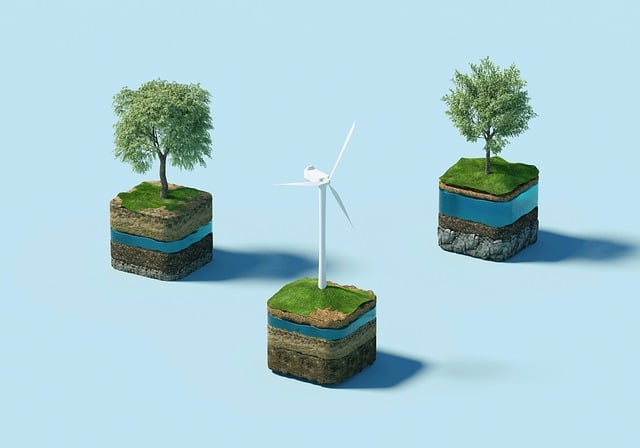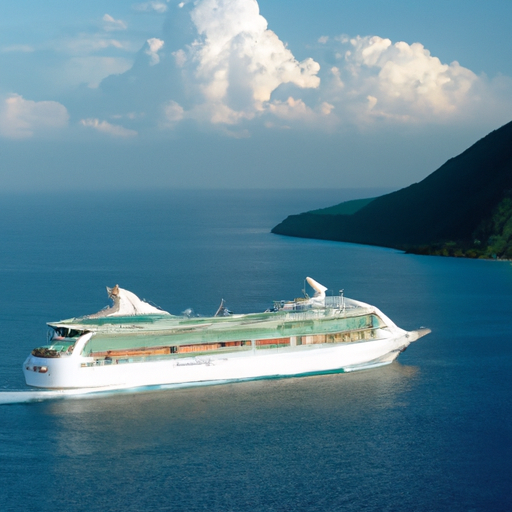Have you ever wondered about the environmental practices of different cruise lines? It’s definitely an important thing to consider, especially if you’re someone who values sustainability and the well-being of our planet. In this article, we’ll be diving into the topic and exploring the various actions that cruise lines are taking to minimize their environmental impact. From waste management systems and energy efficiency measures to sustainable shore excursions and marine life protection initiatives, there’s so much to learn about how cruise lines are being more environmentally conscious. So, if you’re curious to know more, keep reading!
One of the key aspects to consider when it comes to the environmental practices of cruise lines is waste management. Cruise ships generate a significant amount of waste, including food waste, plastic waste, and wastewater. However, many cruise lines have implemented various strategies to address this issue. For instance, some have installed advanced waste management systems that minimize the amount of waste sent to landfills and increase recycling rates onboard. Others have made efforts to reduce single-use plastics on their ships, replacing them with more eco-friendly alternatives. Additionally, many cruise lines are investing in wastewater treatment systems to ensure that wastewater is treated before being discharged into the ocean. By understanding these practices, you can choose a cruise line that aligns with your environmental values and supports sustainable practices. So, let’s dive deeper into the world of cruise line environmental practices and discover how they’re making a positive impact on our planet!

Overview of Environmental Practices
Cruise lines have become increasingly aware of their environmental impact and have taken steps to implement sustainable practices. By adopting various measures, they aim to reduce emissions, manage waste effectively, conserve energy, and promote environmental education. Each cruise line has its own set of initiatives and programs in place to minimize their environmental footprint and preserve the delicate ecosystems they visit.
Emission Reduction Initiatives
To address the issue of emissions, cruise lines have made significant efforts to reduce their environmental impact. They have adopted advanced technologies, such as hybrid power systems and exhaust gas cleaning systems, to minimize air pollution. Furthermore, they have invested in research and development of alternative fuels like liquefied natural gas (LNG) and biofuels. These initiatives not only improve air quality but also contribute to the overall sustainability of the cruise industry.
Waste Management and Recycling Programs
Effective waste management is a crucial aspect of any sustainable practice. Cruise lines have implemented comprehensive waste management programs onboard their ships. This includes proper segregation of waste, recycling initiatives, and the use of advanced waste treatment systems. Some cruise lines have even implemented a “zero waste” approach, aiming to divert all waste from landfills through recycling efforts and sustainable disposal methods. Such programs ensure that the environmental impact of cruise ships is minimized, even when it comes to waste generation.
Efforts to Preserve Marine Life
Preserving marine life is a top priority for cruise lines. Many cruise lines have implemented strict guidelines and policies to protect marine ecosystems. For instance, they avoid sailing near coral reefs or sensitive marine areas to prevent damage to these delicate habitats. Additionally, they take measures to reduce underwater noise pollution, as it can disrupt marine life. Some cruise lines have partnerships with marine research organizations, allowing passengers to participate in scientific studies and conservation efforts. These initiatives not only raise awareness but also actively contribute to the preservation of marine life.

Energy Conservation Measures
Cruise lines recognize the importance of conserving energy to reduce their environmental impact. To achieve this, they have implemented various energy-saving measures onboard their vessels. These measures include using energy-efficient lighting systems, optimizing air conditioning and ventilation systems, and introducing smart technologies to monitor energy consumption. Additionally, cruise lines are investing in shore power systems, allowing ships to connect to the electrical grid while docked, minimizing the need for onboard generators. By adopting these energy conservation measures, cruise lines are working towards a more sustainable future.
Sustainable Shore Excursions
Shore excursions play a significant role in the environmental practices of cruise lines. Many cruise lines are now offering sustainable excursion options to minimize their impact on local ecosystems and communities. These excursions focus on cultural immersion, wildlife conservation, and minimal ecological disturbance. For instance, instead of motorized tours, cruise lines may opt for eco-friendly transportation options like bicycles or electric vehicles. By promoting sustainable shore excursions, cruise lines aim to minimize their environmental footprint while providing passengers with meaningful experiences ashore.

Collaboration with Environmental Organizations
Cruise lines have recognized the value of collaboration with environmental organizations in their efforts to promote sustainability. Many have established partnerships with reputable organizations to support conservation projects and research programs. Through these collaborations, cruise lines contribute financially and actively participate in environmental initiatives worldwide. Such partnerships not only enhance the industry’s environmental efforts but also raise awareness among passengers and crew members.
Alternative Fuels and Technologies
To reduce their reliance on traditional fossil fuels, cruise lines are exploring alternative fuels and technologies. Some cruise lines have gradually introduced ships that run on liquefied natural gas (LNG), which significantly reduces greenhouse gas emissions. Furthermore, cruise lines are investing in research and development to explore other renewable energy sources like hydrogen and fuel cells. These alternative fuels and technologies offer promising solutions to further reduce the environmental impact of the cruise industry.

Environmental Education and Training
Promoting environmental education and providing training opportunities is an integral part of the environmental practices of cruise lines. Many cruise lines have implemented comprehensive training programs for their crew members, ensuring they are well-versed in environmental standards and practices. Passengers also have the opportunity to participate in onboard educational activities that provide information about the environment and sustainable practices. By fostering environmental literacy, cruise lines aim to create a more conscious and responsible community of travelers.
Conclusion
In conclusion, different cruise lines have implemented a wide array of environmental practices to reduce their impact on the environment. From emission reduction initiatives to waste management programs and sustainable shore excursions, the cruise industry is actively working towards a more sustainable future. Collaboration with environmental organizations, exploration of alternative fuels and technologies, and promoting environmental education further contribute to their efforts. By continuously striving to improve and innovate, cruise lines are paving the way for a more environmentally responsible and enjoyable cruising experience. So next time you embark on a cruise, rest assured knowing that the industry is taking significant steps to preserve our planet’s precious ecosystems.

